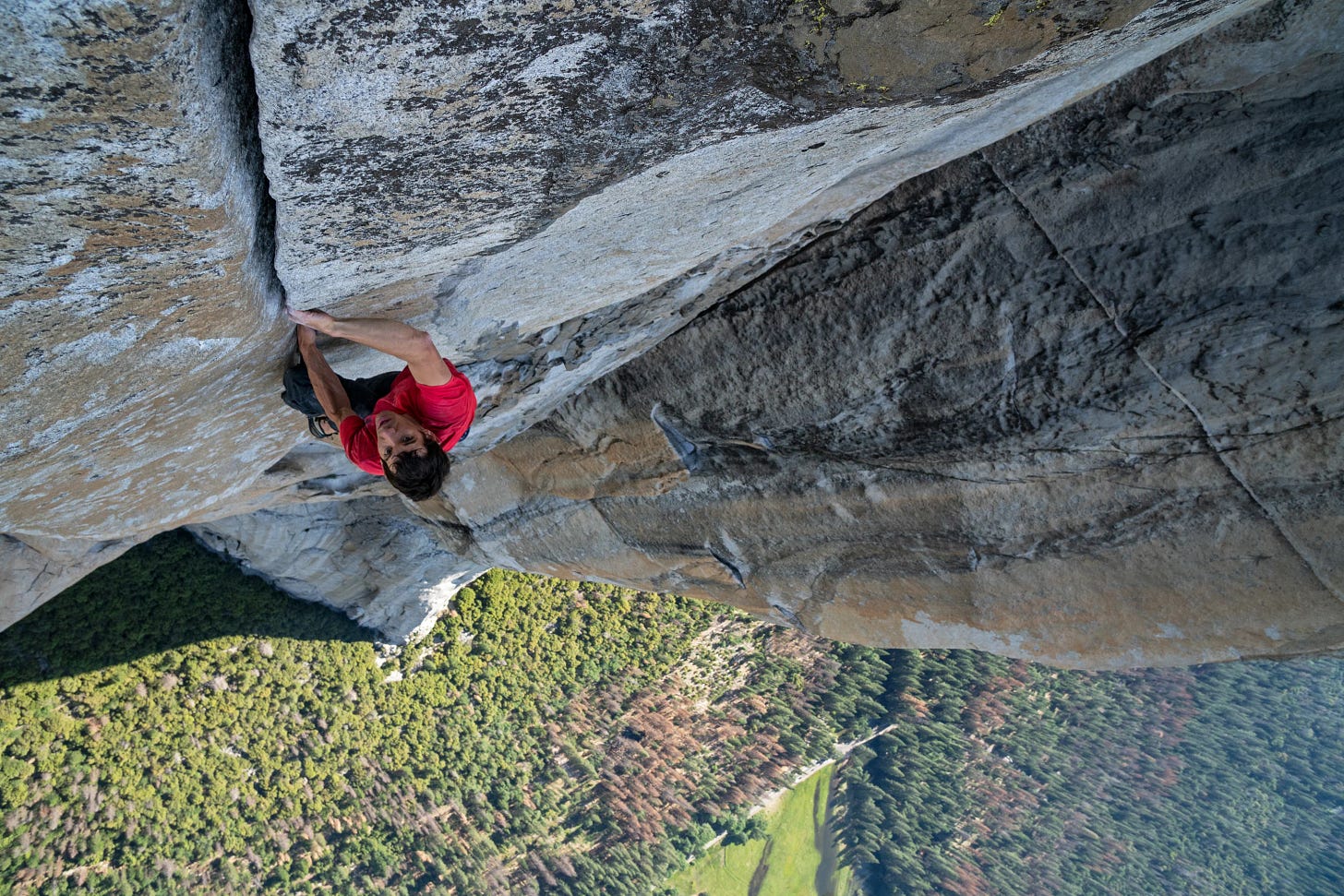I was at a party with a group of old college friends when one mentioned that he’d recently gotten into bouldering and invited me to come along to the climbing gym.
I told him that while it looked fun—I’d seen Free Solo and was in awe of climbing—surely he remembered that I was a deeply unathletic person and I’d be really bad at it. He brushed my concerns aside and said that didn’t matter.
That was how I had a brief rock climbing phase in between the various lockdowns of 2020 and 2021. I’d drive out to Blochaus in Fyshwick, give the walls a go and try to gleam some strategy off my more experienced friends.
I was right: I was completely rubbish. I had a really bad fall during my first visit and scraped both my forearms. But I kept coming back.
What Free Solo had shown me and what my friend had described in between drinks at that party had been true: climbing was wonderful.
Paris 2024
In the lead up to the Paris 2024 Olympics, the event I was most excited to watch was sport climbing.
Sure, there were other exciting things on the schedule: cheer for the Aussie women in the pool. Catch Jessica Fox in the canoe slalom. Watch Simone Biles dominate in gymnastics. See if they’d really make the triathletes swim in the Seine. But the sport that had dazzled me the most in Tokyo was sport climbing so it sat at the top of my list.

I watched every single second of the sport climbing in Paris: the men’s and women’s; the heats, semi-finals, finals; the speed, bouldering and lead.
I got particularly lucky with the time zones: the climbing was on every evening from around 6 to 9pm across Monday to Saturday in the last week of the games.
Paris 2024 was particularly special because Australia’s Oceana Mackenzie made it through to the final eight climbers after finishing 19th out of 20 in Tokyo. Seeded 10th in Paris, her 7th-place finish in the final showed that she was really punching above her weight.
Why climbing?
I think the answer to this question harks back to what attracted me to Blochaus in the first place. What made me return after that painful fall.
Climbing is a full body sport that requires strength in your arms, legs, core and mind. Even though it looks like an upper body sport—aren’t they pulling themselves up the wall?—as soon as you try it for yourself, you realise how much strength you need in your entire body. It’s a challenge that requires a whole range of skills including flexibility, agility and explosiveness.
But the thing that always brings me back to climbing is the strategy.
I will never flourish in a sport based on physical ability. My crowning glory in sports comes from finishing third-last in a biathlon when I was thirteen. I couldn’t believe I’d beat not just one, but two whole people.
Bouldering requires thinking. Just being strong will never get you to the top. You need to be able to analyse the holds and envision the route in your head. You need to know how to play your own strengths and weaknesses.
This is what elevates sport climbing for me. It requires the athletes to be fast on their feet at problem solving. In both the bouldering and lead disciplines, no two routes are ever the same. The athletes can’t watch each other compete so they don’t know how their competitors are approaching the route. It’s just you and the wall.
The fear of falling
In Free Solo, the directors try to figure out why Alex Honnold isn’t afraid of falling and eventually, thanks to an MRI scan of his brain, find out that there is little or no activity in his amygdala in response to fear-inducing scenarios.

Watching the climbers compete in the lead climbing at Paris left me truly awestruck. They climb a 15-metre high wall—approximately the equivalent of a five-storey building—clipping themselves in as they go.
The only way is up. If they miss a hold, they will fall.
Across the entire lead competition in Paris, every single competitor fell. Nobody made it to the top. Several got close: Japan’s Ai Mori got one hold away in both the semi-final and the final and Slovenia’s Janja Garnbret got one hold away in the semi-final before her eventual gold medal win.
But every athlete felt that terrifying moment when their hand slipped unexpectedly and they entered free fall before the rope caught them.
I struggled with this a lot when I was climbing. I didn’t understand how I could put so much faith in myself to land a leap. The sting of my most recent fall always played heavily on my mind. I felt so much respect for the Olympic climbers.
LA 2028
Like most of my sporty endeavours, I lost interest in climbing eventually. I drove out to Fyshwick for the last time without even realising it.
But I think my love of watching sport climbing is here to stay. I’m grateful for my brief flirtation with the sport because, ultimately, I think that’s what drew me to watch it: I tried it. I understand it. I know how hard it is.
I’m looking forward to LA 2028 already (and I’m hopeful that they’ll separate bouldering and lead climbing to add at least one more climbing medal) but I plan on watching as much as I can before then, too.
The next major climbing tournament is the International Federation of Sport Climbing European Championships which will be streaming on their YouTube channel from 24 August 2024. Free Solo is streaming on Disney+.




